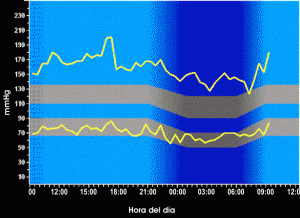
Life insurance policy holders should carefully plan ahead so their beneficiaries are promptly paid their life insurance money. The beneficiary should be aware the pay out procedures of the life insurance carrier.
California adds some protection
On October 2nd Governor Jerry Brown of California signed a new law requiring life insurance companies to get approval from beneficiaries to keep death benefit payments in retained asset accounts. This is good news for California consumers. Any steps taken to safeguard this process are welcome.
Check vs. check book
Life insurance is not necessarily paid out as a lump sum. Don’t assume the beneficiary of a $500,000 life insurance policy gets a $500,000 check in the mail. Starting in 1983, life companies began adopting the practice of sending beneficiaries a check book with pay out options. Nothing to stop the beneficiary for writing a check for the lump sum and depositing it a bank, but if not the benefit is kept in a retained asset account. Why did this happen? Simple. Life insurance companies earn a profit on the money retained. Was this a bad deal for the consumer? It depends on the company, the interest rate offered, protections and fees charges. Financially sophisticated beneficiaries would find the highest rate of interest possible for their money and move their money immediately for the highest rate of return or to lock in an annuity or investment. This retained account works against beneficiaries who delay making a decision or do not shop around for the best return on their money. Also this money is not FDIC insured.
According to the National Association of Insurance Commissioners, the key issues for retained asset accounts: (emphasis mine)
- What interest rate will be paid on the proceeds, how will the interest rate be determined and how will the interest amount be credited to the account?
- Will the proceeds be held in a bank, which would make the proceeds FDIC insured up to the limit permitted by law?
- Will the proceeds be held by the insurer, which would make the proceeds subject to coverage by a state guaranty fund should the insurer fail?
- Will the proceeds be held in a bank checking or an insurer draft account and what banking services, if any, will be provided?
- What services will be provided at no charge and what services will involve a fee?
More consumer protection and awareness is needed
Beneficiaries who do not move their money were taken advantage of with uncompetitive interest rates, high fees and lack of protection offered by federally regulated banks. Keeping the money in a retained asset account opens the beneficiary to other possible abuses.
It’s important for someone to give the beneficiary sound financial advice at claims time. Given the beneficiary is possibly grieving and at the insured passing away, he or she may not ready to make a good decision in a timely manner.
A policy owner should have a life insurance agent who is actively servicing the policy. If you are not in contact with the agent who sold your policy to you, an agent like myself can become your servicing agent. When the insured passes away, the agent can assist the beneficiary with the death claims: contact information, the claims form, and which other collaborating information is required: the death certificate and often a public notice of the insured passing away. Also the agent should inform the beneficiary of the company’s pay out practices, to give the beneficiaries advice on what is in their best interest. Remember an independent agent is not employed by the life insurance company. The agent duty is to work in their client’s best interest.
Ideally what the beneficiary does with the life insurance money is an informed choice made in council with a family adviser, financial professional or executor. Life agents can serve the beneficiaries by informing them of their annuity options. It is important for the beneficiary, if desiring an annuity, to shop for the best deal, and not automatically take an annuity offered by policy holder’s company. What best will depend on the beneficiaries situation. A conscientious servicing agent knowing the policy holder’s intentions and instructions is in a very good position to help serve in the beneficiary’s best interest.







